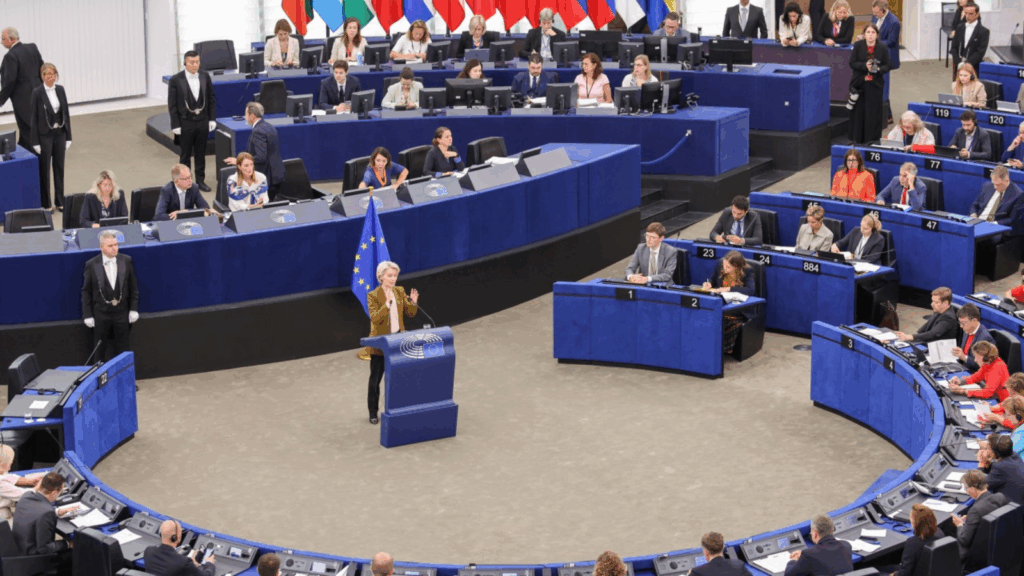The Citizens, Equality, Rights and Values programme aims to protect and promote European Union rights and values as enshrined in the EU Treaties and the Charter of Fundamental Rights, particularly by supporting civil society organisations active at local, national and transnational level.
First call
The first call is titled “Call for proposals to prevent and combat gender-based violence and violence against children” (CERV-2024-DAPHNE).
The objectives are to fight violence, including gender-based violence and violence against children by:
- Preventing and combating at all levels all forms of gender-based violence against women and girls in all diversity and domestic violence, including by promoting the standards laid down in the Council of Europe Convention on preventing and combating violence against women and domestic violence;
- Preventing and combating all forms of violence against children, young people and other groups at risk, such as LGBTQI persons and persons with disabilities;
- Supporting and protecting all direct and indirect victims of the forms of violence referred to in points (1) and (2), such as the victims of domestic violence perpetrated within the family or within intimate relationships, including children orphaned as a result of domestic crimes, and supporting and ensuring the same level of protection throughout the Union for victims of gender-based violence.
The call has the following priorities:
- Large-scale and long-term transnational actions on tackling gender-based violence
- Targeted actions for the protection of and support for victims of gender-based violence, including children
- Targeted actions for the prevention of gender-based violence, in the domestic sphere, in intimate relationships, and online, including through targeted actions with perpetrators
- Targeted actions making integrating child protection systems work in practice
Activities shall include:
- Development of tools to help recognise and address early signs of domestic violence and violence against children;
- Awareness-raising, including social media and press campaigns, outreach and empowerment activities, including communication activities and dissemination of information;
- Capacity building and training for professionals and relevant stakeholders, in particular train-the-trainer programmes, training activities of national, regional and local authorities;
- Design and implementation of strategies, protocols, development of transferable working methods and tools, coordination platforms and groups;
- Design of services and measures improving access to victim support services;
- Identification and exchange of good practices, cooperation, mutual learning, development of working and learning methods, including transferable mentoring programmes;
- Development of guidelines and manuals for specialised support services (e.g. in the work place, schools, universities, online);
- Analytical activities, such as data collection and research, and the creation and implementation of tools or data bases/data collection strategies and systems.
The call is planned to open on the 12th of December 2023 and the deadline for submission is the 24th of April 2024. For more information, please visit the Commission’s website.
Second call
The second call is titled “Call for proposals to promote gender equality” (CERV-2024-GE). The objective of the call is to support, advance and implement comprehensive policies to promote women’s full enjoyment of rights, gender equality, including work-life balance, equal pay between women and men, women’s empowerment and gender mainstreaming.
The call has the following priorities:
- Tackling the root causes of the gender care gap by promoting a gender-transformative approach and challenging gender stereotypes
The aim of this priority is to support:
- Promotion of family-friendly practices in companies encouraging the take up of the new rights under the Work-life Balance Directive by both women and men (including family leaves, new ways of work organisation, telework and hybrid working, flexibility of hours, shorter working week, job sharing …);
- Prevention and protection against any form of unfavourable treatment and discrimination of women during and after pregnancy as well as of women and men who took family leave (maternity/paternity/parental/carer leave) and flexible work arrangements;
- Raising awareness of the value of care work by reflecting on the appreciation of skills needed for care work, including soft skills, the intensity of the work and other aspects of working conditions in care jobs;
- Challenging gender stereotypes that perpetuate the traditional division of labour with the objectives to:
− Encourage equal sharing of informal care work (care of their children, housework and care of dependents) to ensure better reconciliation of private/work life;
− Promote the role of men in care and family responsibilities and encourage men to take parental and paternity leave;
− Promote the value of paid care work;
− Encourage the involvement of men in care work (formal and informal), both in childcare and long-term care.
Indicative budget: EUR 4 million
- Supporting the implementation of the provisions of the Pay Transparency Directive
The aim of this priority is to support Member States authorities responsible for implementation of the provision of the Pay Transparency Directive (possibly in cooperation with other entities such as other public entities, private organisations or international organisations which can apply as co-applicants8 ) in developing national guidance and/or tools for gender-sensitive job evaluation and classification systems and in raising awareness of this guidance and/or tools among employers and workers representatives in their respective countries.
In line with the Gender Equality Strategy and to address the root causes of the gender pay gap, the new Directive 2023/970 aims to strengthen the application of the principle of equal pay between men and women for equal work or work of equal value through pay transparency and enforcement mechanisms. The Directive seeks at better enforcing the right to equal pay and to make it easier to detect structural pay gaps and discrimination based on sex.
Among others, Member States obligations (Art.4.2 of the Directive 2023/97010) involve the establishment of analytical tools or methodologies to assess and compare the value of work. These may include gender-neutral job evaluation and classification systems.
Job evaluation systems are a tool for assessing the value of jobs against factors such as the level of skill, effort, responsibility, or working conditions. They may, if not used in a gender-neutral manner, contribute to the accrued discrimination by evaluating male and female dominated jobs differently and in a biased way.
Indicative budget: 6,1 EUR million
The call is planned to open on the 12th of December 2023 and the deadline for submission is the 29th of February 2024. For more information, please visit the Commission’s website.
Third call
The third call is titled “Call for proposals to National Contact Points for Roma equality, inclusion and participation” (CERV-2024-NRCP).
Objectives
The objective of the call is to foster the implementation of the EU Roma strategic framework on equality, inclusion and participation (EURSF), and of the Council Recommendation, in the Member States. Additionally, the call will also actively contribute towards promoting equality and preventing and combating inequalities and discrimination on grounds of gender, racial or ethnic origin, religion or belief, disability, age or sexual orientation and respecting the principle of non-discrimination on the grounds provided for in Article 21 of the Charter.
Themes and priorities
The aim of this Call is to advance the institutional development and capacity of the National Roma Contact Points for Roma equality, inclusion and participation (NRCPs) in their role of facilitating national consultation processes, particularly through reforming and strengthening their established National Roma Platforms (NRPs).
The main mission of the Platforms is threefold: widen policy discussions on the implementation of national Roma strategic frameworks, deepen domestic accountability structures, and reinforce links between the local and national levels. NRPs will promote and facilitate dialogue, mutual learning, cooperation and policy review among all national stakeholders (e.g., Roma and pro-Roma civil society organizations, activists, elected and appointed officials in public administration, representatives of public administration, academia, etc.). Within the context of the NRPs, the NRCPs are also expected to boost, in a gender-sensitive way, the representation of Roma in the platform structures, including of women and youth, as well as by nominating a Roma representative to ensure the link between National and the European Roma Platforms.
Projects may involve one or more organisations, i.e. a National Roma Contact Point (NRCP), as lead applicant, and co-applicant(s) being private or public non-profit bodies (e.g. Roma civil society organisations, etc.). Projects submitted by consortia formed of NRCP and Roma and pro-Roma civil society organisations are particularly encouraged.
The call is planned to open on the 12th of December 2023 and the deadline for submission is the 7th of March 2024. For more information, please visit the Commission’s website.
To learn more about current calls for proposals or Eurodiaconia’s funding events, please don’t hesitate to get in touch with our Projects and EU Funding Officer Giorgia Signoretto at and our Research and Projects Assistant Alice Widerberg at .



